Interview: Ben Edlin And Deborah Aquila on TH IR DS at Zephyr Theatre
Co-Creators of its World Premiere Production

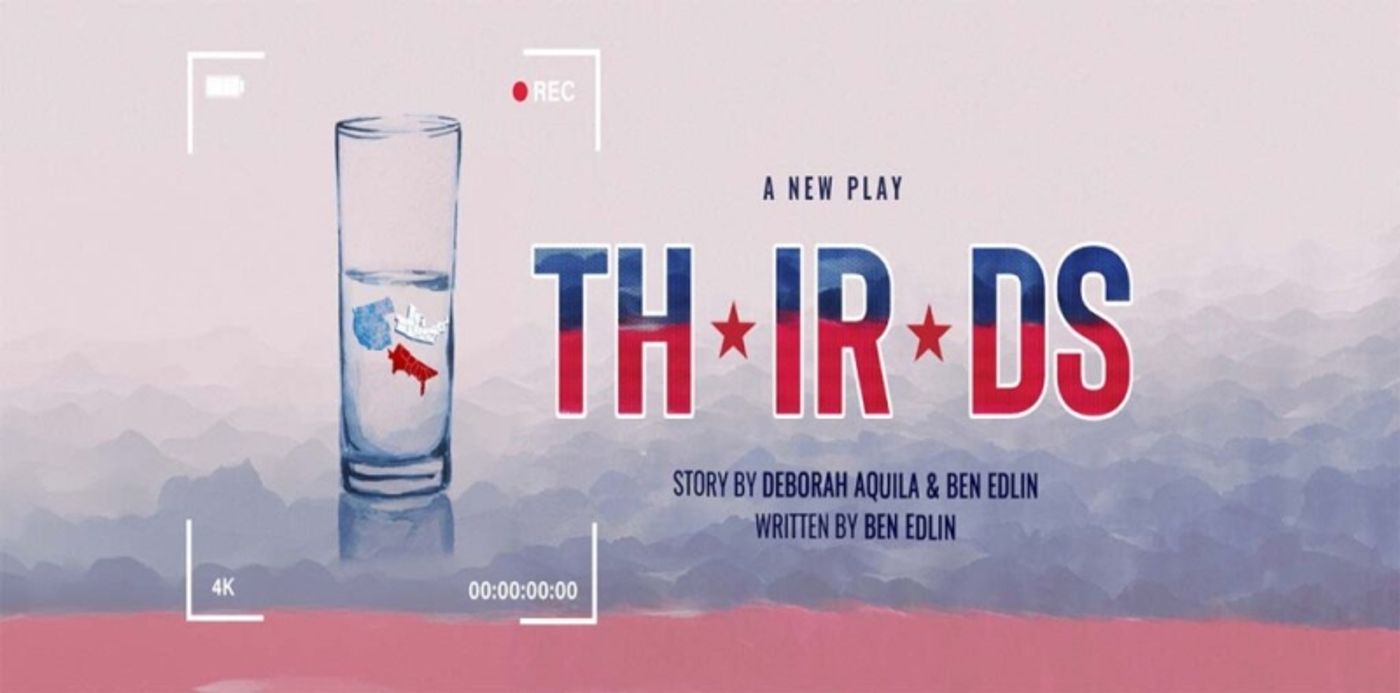
Given the divisive political climate in our country right now, when I heard about the new play TH IR DS being presented at the Zephyr Theatre, I decided to speak with Co-Story Creator/Playwright/Actor Ben Edlin and Co-Story Creator and Multi-award-winning Casting Director Deborah Aquila about the creation of such a timely piece of theatre.
Thank you both for speaking with me today. Let me start with few questions for Ben. How did the current political divisiveness in America make it easier to envision such a world?
I’m sure most of your readers would agree, you don’t need something as dramatic as a play to see that the current state of our political dialogue in this country is troubling. Every time we turn on the TV or swipe through our phones, we are confronted with increasingly polarizing rhetoric aimed at pitting us, and those who agree with us, against those who don’t. In a two-party political system this isn’t all that surprising, but what has become surprising to me is the increasing level of hate and disrespect that has been sewn into the fabric of the discussion. In fact, most of the political rhetoric in our country today is aimed not at finding solutions to our problems, or cooperation in any sense, but rather to drive us further apart and make us more fearful.
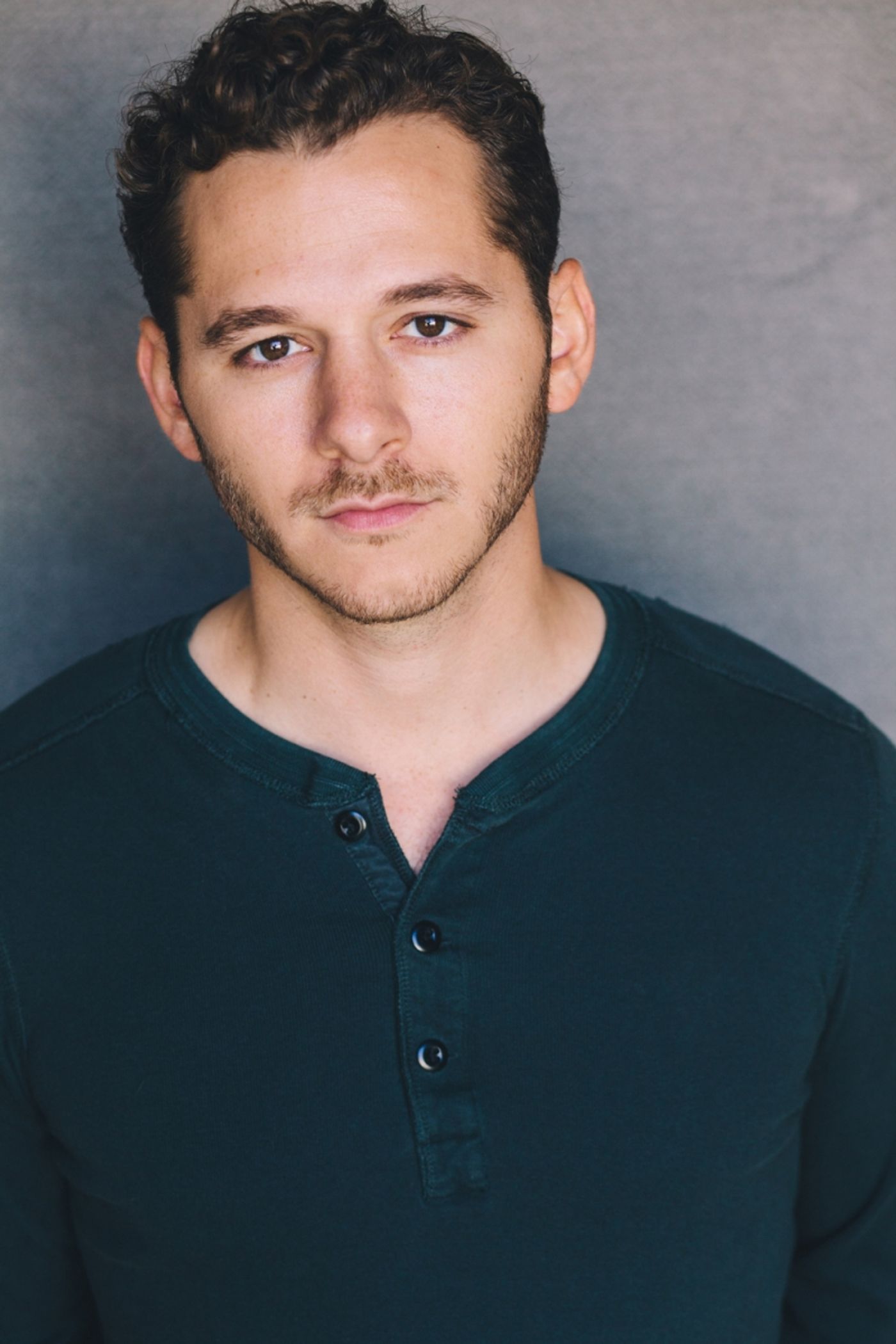
TH IR DS Co-Story Creator, Playwright and Actor Ben Edlin.
For most of my life, and for most of the life of this country, the idea that the American Experiment was worth fighting for was seen as a bedrock notion of our identity. But today, it seems that every other talking head on TV or in Congress feels the idea of a “national divorce” should be back on the table. It’s an incredibly slippery slope, and one of the most harmful notions I can imagine to any hope of national unity. TH IR DS is an exploration of what might have happened had this idea taken root, played out on a massive scale.
Were there any specific historical events or people that inspired you and Deborah to explore this alternative timeline where the Civil War was never fought?
The obvious answer would be that our play revolves around the issues facing America at the time of secession and the Civil War, and how those issues relate to America in the present day. But more than any specific event, our alternative timeline was inspired by conversations Deb and I would have about the decreasing quality of political discourse in our country. We have always had big disagreements about the correct way to deal with big problems, but recently the discussion has taken on a different flavor. We don’t see the people who disagree with us as simply having bad facts or bad philosophy; we see them as bad people who mean us harm.
And the willingness of our political class to weaponize that perceived animosity, apart from being simply abhorrent, has driven the dividing wedge even further. It feels good to make quick judgments and dismiss the things we don’t understand. It’s easy to point to individuals or events and drape them with the entirety of the blame, but really they are troubling symptoms of a much larger and fundamental problem.
Corbin Reid and Carlo Mancasola n TH IR DS. Photo credit: Jeff Lorch" height="267" src="https://cloudimages2.broadwayworld.com/upload13/2331228/Ben-Edlin-Corbin-Reid-Carlo-Mancasola-2.jpg?format=auto&width=1400" width="400" />
Ben Edlin, Corbin Reid and Carlo Mancasola n TH IR DS. Photo credit: Jeff Lorch
TH IR DS occupies a world in which this division has become the rule, and the ways that we separate ourselves ideologically have become international borders. It’s a cautionary tale of the very human consequences that result from a small group of powerful people forgetting the most basic element of a democracy: that in order to solve the big problems we face, we need each other.
How did you approach the creation and cultures of this new world within your play?
Building the different cultures of TH IR DS was one of the most interesting and creatively enjoyable aspects of the entire writing process, and it was a true team effort to bring those cultures to life. It’s an interesting question: if America is divided into three, which aspects go where? How do you unravel the American DNA we are all so familiar with, and what would each of those strands look like if they were forced to grow on their own, separate from the others?
We wanted each country to have its own identity, and focused on every aspect to put as much story and history into what the audience sees on the stage. Things like fashion, dialect, and interior design were all tailored to each specific country, and beautifully brought to life by our incredible Costume Designer, Emilyna Cullen, and our set designer, Jeff Rack.
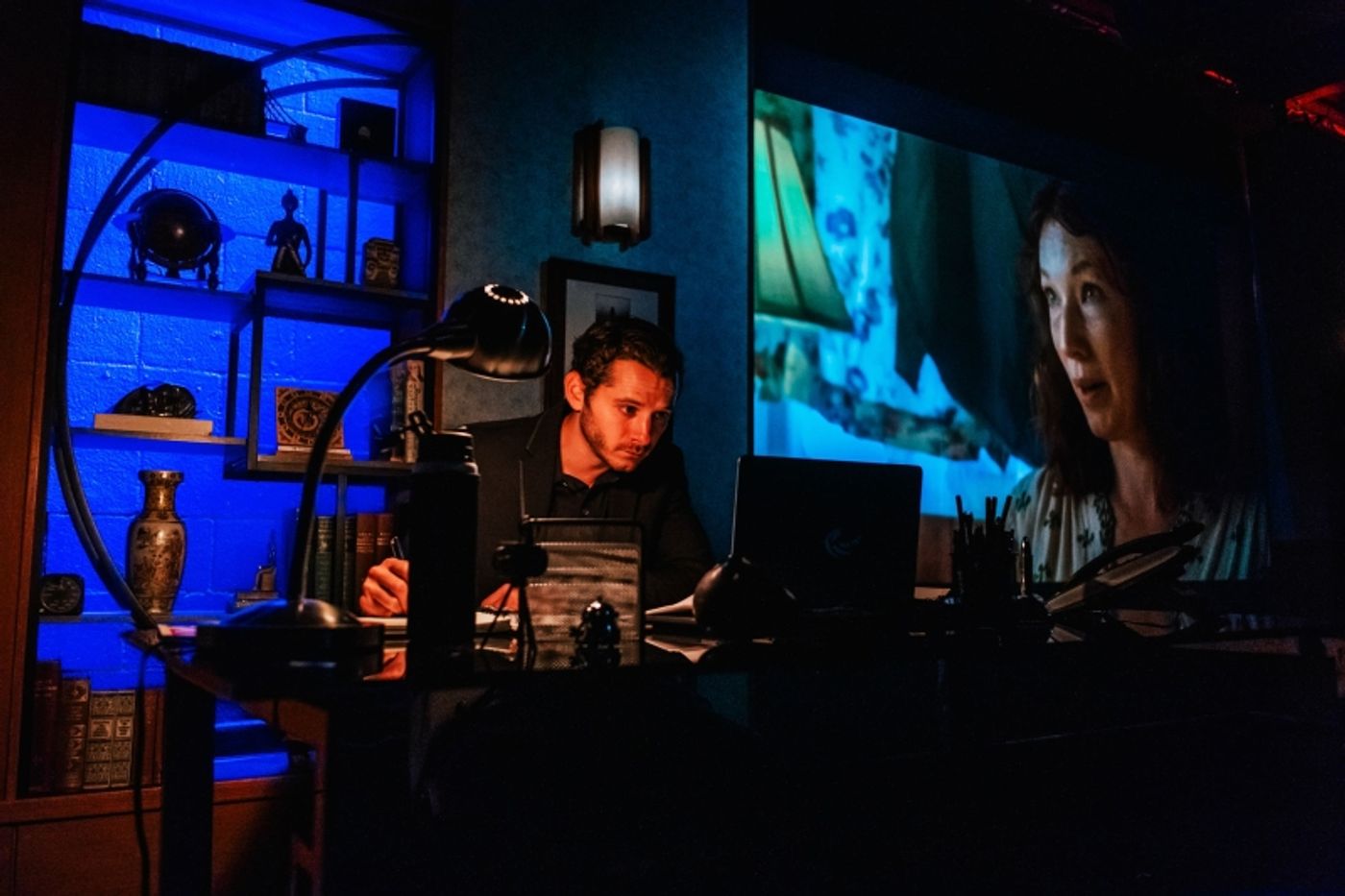
David researches the life of Patricia Todd in Alabama in TH IR DS. (Ben Edlin and Tess Harrison) Photo credit: Jeff Lorch
A lot of the story is told through a documentary-style film, which is intercut with the action on stage. Figuring out how to give the audience a real feel for the different countries represented on screen was a fun creative challenge.
Staging the play that way certainly brought the issue of clean water into crystal clear focus through those suffering without it.
Those scenes are so beautifully brought to life by our director, Jess Aquila Cymerman, and our DP, Jasmin Kuhn, who give the audience a truly visceral experience.
What were key factors when determining how the countries would be divided, and how they would function?
In terms of how they are divided, most of that work was done for us by the manner in which the states seceded in the early 1860s. The Union States and Confederate States are largely the same in our play as they were during the Civil War. And since a lot of the discussion at that time revolved around ensuring that neither side would be able to grow more powerful than the other, it followed logically that, once they had decided to separate, the western states would be allowed to form a nation of their own so as not to give an edge to either the North or South.
How they might function is a different story. What are the ingredients that make up a nation’s identity, culture, and world view? In the case of TH IR DS, we focused on differences in geography, natural resources, religion, each country’s relationship to things like war, poverty, law and order, and national pride: all of the things that, when taken together, form a set of national values that hold a people together.
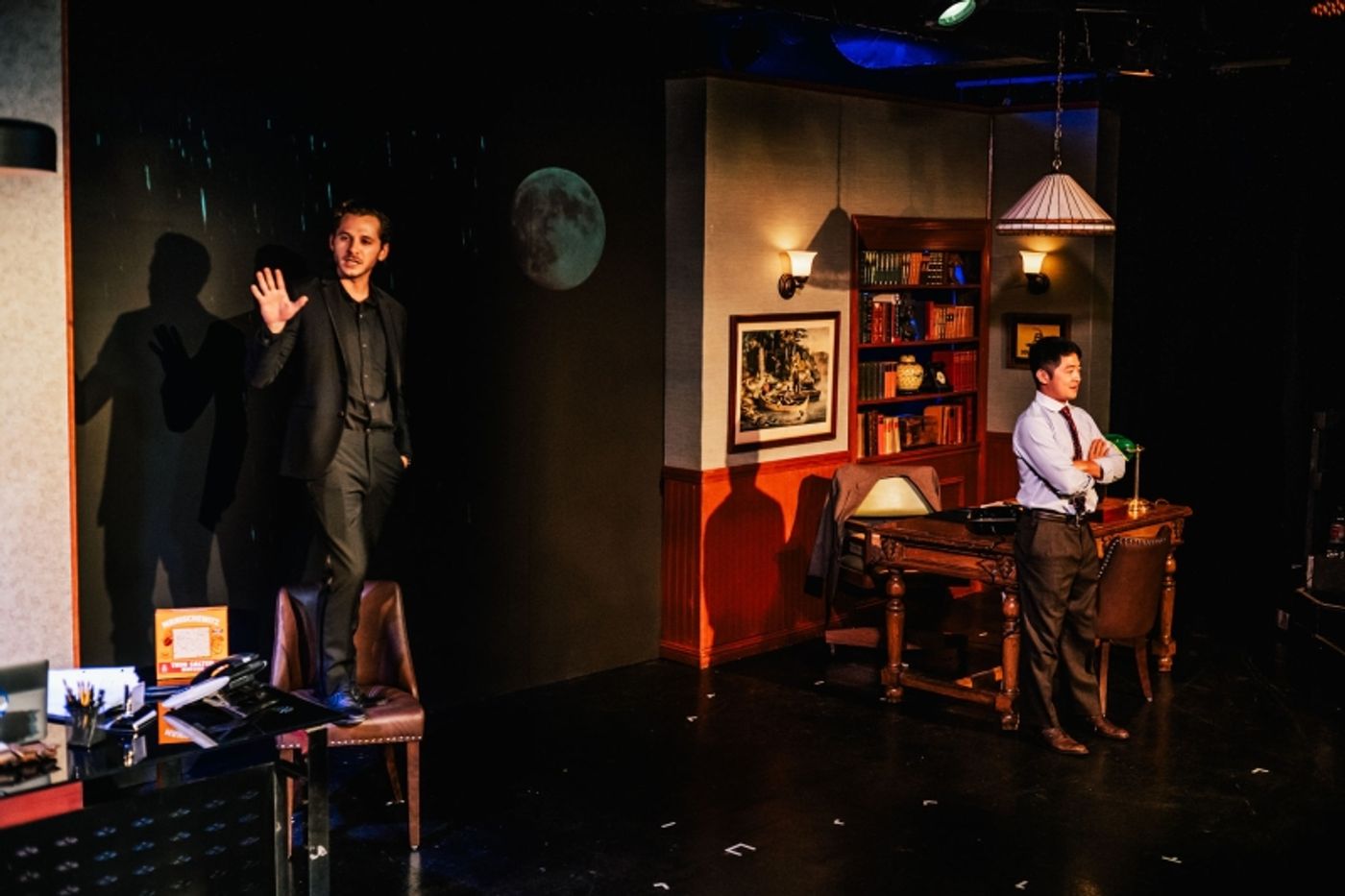
Ben Edlin and Brian Yeun in TH IR DS. Photo credit: Jeff Lorch
You are playing David Cohen in TH IR DS. Have you directed a project in which you have appeared before?
I have never directed a project in which I’ve acted, but I can say that our director for TH IR DS, Jessica Aquila Cymerman, has done an incredible job in bringing this play to life. She was given a massive undertaking, which was to direct a full stage play, as well as a documentary-style film, and weave them together to create a cohesive and engaging story, and I couldn’t have asked for a more talented or creative director to bring the script to life. The multi-media format of TH IR DS and the blending of film and stage stories, is one of the aspects audiences have loved the most about the play. And that’s all due to Jess’s hard work and creative vision.
Tell me about how your character fits into the story.
Dave is from the Pacific States and is the right-hand-man to Catherine Shephard, who is the driving force of the play. Together, they built the most powerful water and power company in the world, and the idea of building a pipeline to bring clean water to the Confederate States was her idea.
Dave has dedicated himself to helping Catherine achieve her vision and believes that in bringing water to the people who need it, he is at the forefront of what he believes is the highest mission possible: to create an equal and equitable pluralistic society where no one is denied their basic human rights. His desire to leave the world better than he found it is further fueled by the fact that he has a baby on the way.
His dedication to Catherine and their mission is unwavering, and his progressive ideals and liberal philosophy are well intentioned. But his commitment has left him with some ideological blind spots which he may have to get to the bottom of in order to turn his and Catherine’s vision into a reality.
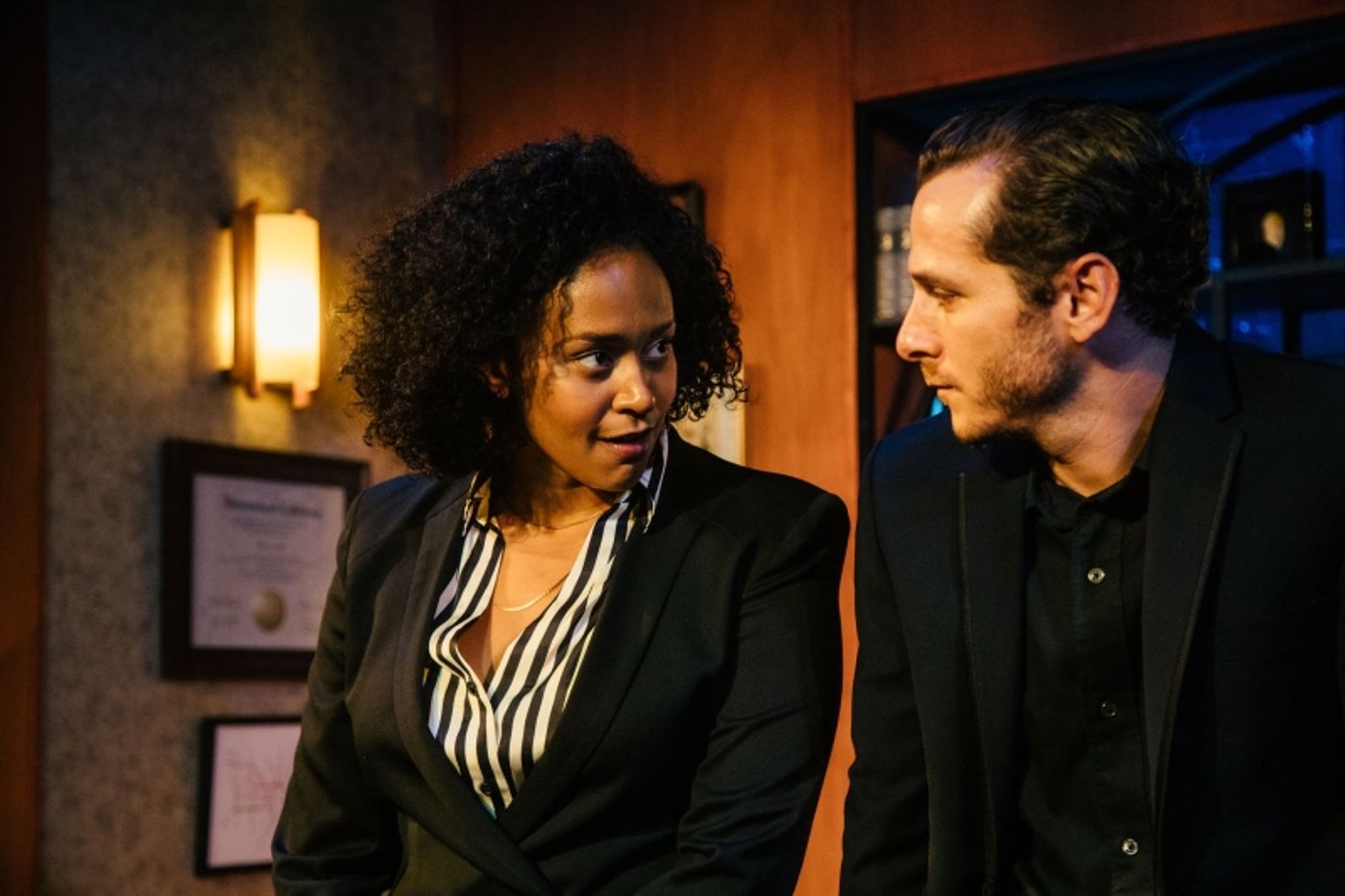
Corbin Reid (Catherine) & Ben Edlin (David) from The Pacific States of America. Photo credit: Jeff Lorch
Who are the other major characters in each of the TH IR DS?
At its heart, TH IR DS is a play about reflection, and so the characters from each country find themselves mirrored in the others.
Catherine Shephard, David’s boss and leader, is a Los Angeles native who has become one of the most powerful people in the world due to her innovations and inventions in the field of water filtration and irrigation. Her company, Poseidon Water and Power, leads the world in its ability to turn any water, anywhere, into clean and potable hydration, and her innovations in pipeline technology means she can bring the water wherever it needs to go. She has the ability to be one of the single greatest forces for good in the entire world, and will stop at nothing to ensure that the people who need her water will get it.
James Cross is a political powerbroker from the Confederate States who sees himself as the only person in the Confederacy capable and willing enough to stand toe-to-toe with Catherine. He knows his citizens are in desperate need, but he also knows better than anyone the realities of maintaining power in the South, and doesn’t take kindly to outsiders trying to tell him and his government what to do.
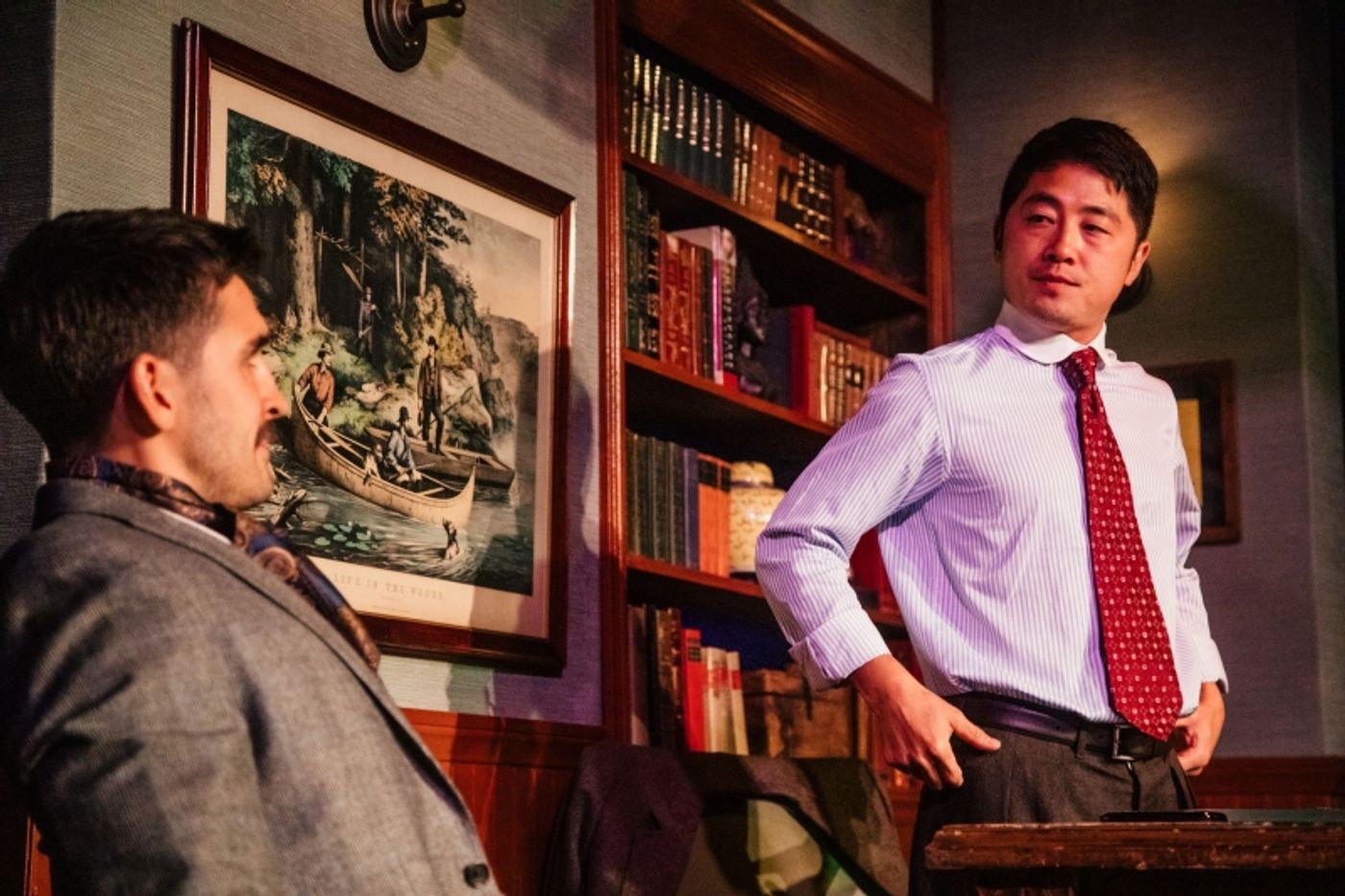
Carlo Mancasola as James Cross & Brian Yeun as Steven Choi from The Confederate States of America. Photo credit: Jeff Lorch
Steven Choi is a Korean-American banker from the Confederate States, and has been working hand in hand with David to ensure that the deal for the pipeline is a success. He was born and raised in the South; however, his grandparents immigrated after the Korean War, and his “outsider” status in the mostly White Confederacy has left him with conflicting views about where he lives and how he is treated there. He is also an expectant father, and bonds with David over their mutual desire to create a better world for the next generation.
Peter and Patricia Todd are a married couple living in Montgomery, Alabama, where they haven’t had access to clean water in over six months. Their love for each other and dedication to keeping their infant daughter healthy has bolstered them against the growing health crisis, but they have found themselves in a dire situation: Peter’s job as a coal miner has taken a toll on his body and spirit, and the government’s unwillingness to help them has left Patricia to resort to the most desperate measures to try to keep her family safe.
And these two are the ones featured so realistically in the documentary-style film in the play.
William Seward is a professor at Princeton University in the Union States. He has dedicated his life to the study of “The Great Secession,” and the effects of its aftermath on the American psyche.
Do the political and social dynamics of your alternative timeline reflect or contrast with real historical events and issues?
I was a history major in college, so one of the most intriguing challenges in writing
TH IR DS was how to weave the real historical events and personalities that the audience is familiar with into the alternate history that we’ve created. The events that we describe leading up to the Civil War, or in our case, the absence of the Civil War, is all factually accurate. There is nothing in the play about Abraham Lincoln or the events leading up to secession that is untrue, which, in my research, I found to be more than a bit uncomfortable: the America of 1860 was alarmingly similar to the America of 2024 in terms of the health of our political discourse.
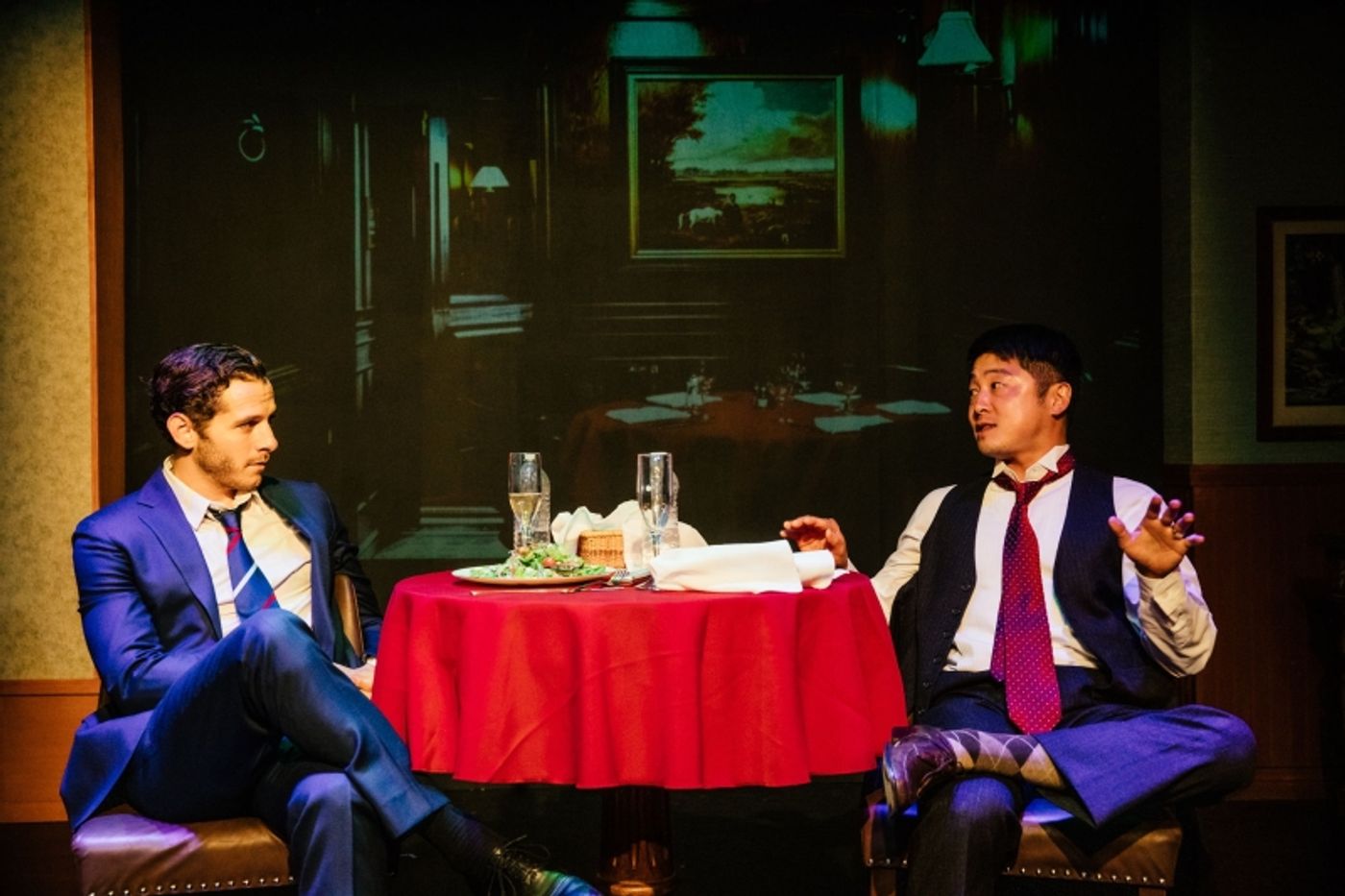
Ben Edlin and Brian Yeun in TH IR DS. Photo credit: Jeff Lorch
Another aspect that we felt important to keep consistent is the very real issue of access to clean water and the increasing frequency and severity of draught conditions. Areas of the south, or in our case, the Confederacy, particularly Texas, experience some of the worst droughts in the country, and Alabama, where the majority of our play takes place, is experiencing a drought as we speak.
Where history starts to differ in our play is when Lincoln decides not to fight, and allows the South to secede. What then? Our goal with TH IR DS was not simply to create an entirely foreign history, but rather to use the idea of an alternate American history to reflect our current social issues through a different lens: to create something theatrical that was grounded in the reality of our time, something alien and yet familiar.
And so, rather than inventing, we’ve blended them. Events like World War II and the development of the nuclear bomb, The Korean War, the Hippie movement, characters like JFK and MLK and Ronald Reagan, all exist in the world of TH IR DS, however their stories and influence are slightly altered in the context of a different history.
Have there been any surprising interpretations or insights from your audiences?
By far the most enjoyable part of our run of shows so far has been talking with the audience after the play and hearing their thoughts. We never set out with TH IR DS to preach any particular point of view as our goal has always been get people talking to each other. Many of them haven’t seen a live performance, so we evenly divided the action between the stage and screen. And it’s been thrilling to hear how much they enjoy the multi-media aspect of the story, which was always a bit of a risk, as anything novel is.
More than anything it has been incredibly heartening to hear from our audiences that their take-away from TH IR DS has been what we always wanted it to be: that we can disagree with each other without malice, that extreme, polar politics is counterproductive, and that communication and empathy, like water, are the lifeblood of a healthy and affective society.
Thanks so much, Ben!
Deborah, as a story creator, how are your ideas influenced by your long-time career as a casting director?
I am grateful that I had the opportunity, for over four decades, to have experienced works by many brilliant writers. The themes and ‘big ideas’ I encountered and reflected on for years was much-needed nutrition, creatively.
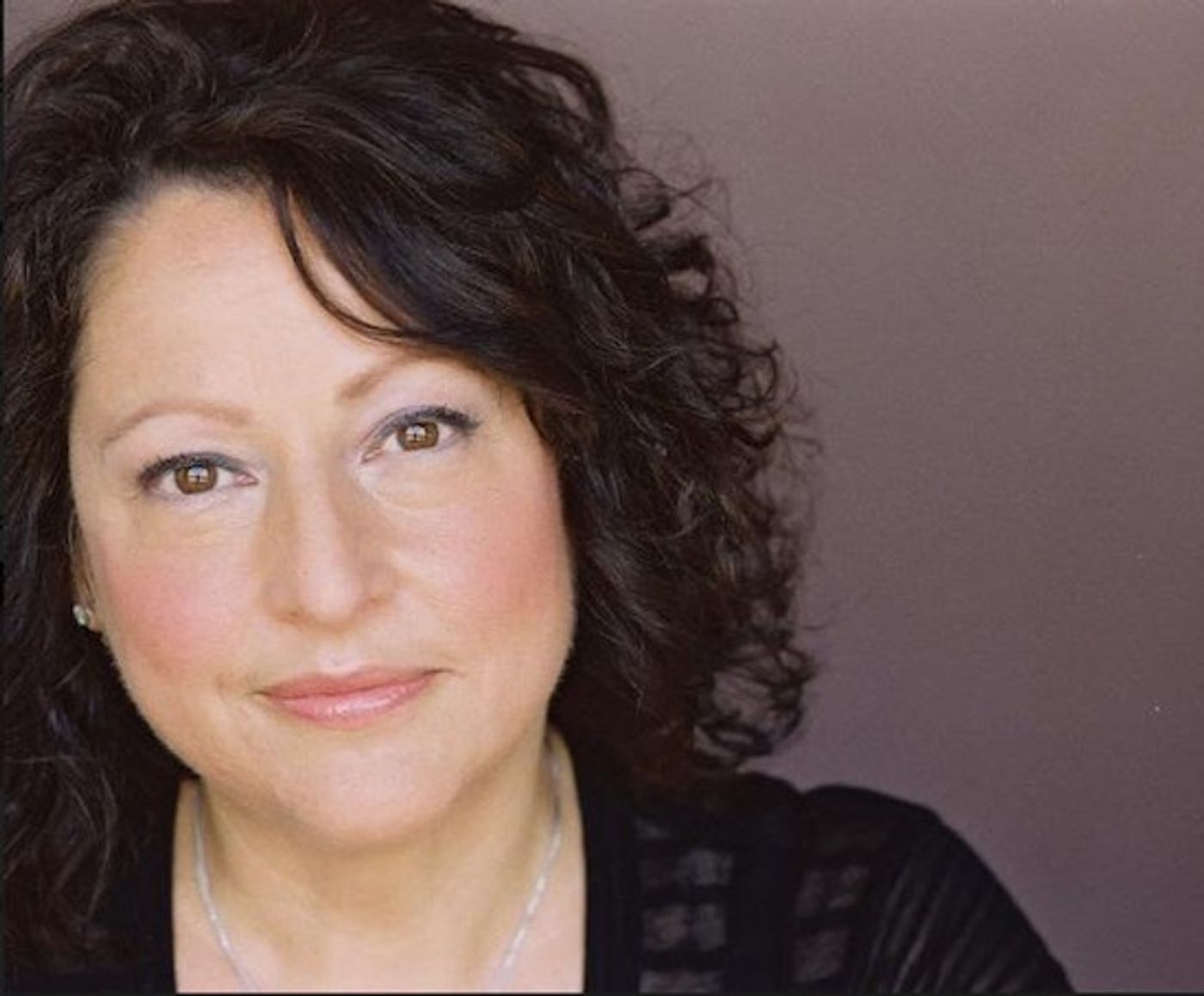
TH IR DS Co-Story Creator and Multi-award-winning Casting Director Deborah Aquila
What was the inspiration behind the alternate timeline concept where the Civil War was never fought?
In 2017 I read an article published by the Pew Research Centre, a resource I’ve come to trust as reliably nonpartisan. This one paragraph frightened me deeply. “The nation’s stark partisan fissures are likely to persist and may deepen…A reality of American Politics today is that one of the only things large numbers of Republicans and Democrats can agree on is that they can’t agree on basic facts.”
If a society cannot communicate ideas based on basic facts, not opinions, how do we function together? How do we trust each other? How do we educate our children? How do we progress as a society? How do we hold a nation together? More importantly, how do we learn to love each other, listen to each other, and trust each other, again? For the sake of our children and their children? How do we address existential threats to future generations if we can’t agree that the Earth is not flat and that gravity is a real thing?
That was the inspiration for our play, TH IR DS. I imagined what might have happened if Lincoln had never fought the war. We were as divided then as now. People fervently believed that their way of life, their values, were the correct and moral way to live their lives. How does one country stay as one country when the value systems of its citizens are so entirely disparate?

Ben Edlin and Brian Yeun in TH IR DS. Photo credit: Jeff Lorch
How is the United States divided into thirds in your play, and what political, social, and economic characteristics are of each division?
In TH IR DS, we created an alternative map of the country as we know it. We divided the States into three countries, The Union States of America, The Confederate States of America, and The Pacific States of America. We imagined The Union States with the deepest roots, the more mature government, a history richer than the nascent countries of the CSA, and certainly the youngest, The Pacific States of America. The engine of each economy would be vastly different based on their location. The sociological values perhaps grew from the economic structures and needs of each society and, as in our reality today, present their unique wants and demands differently.
How does this divided America negatively affect the lives of the characters, and how did you and Ben work together to intersect their personal stories with the larger geopolitical landscape? Each third of the country must be both similar and so different in their own ways…
The question that was top of our minds as we crafted the story and wrote the lines of dialogue was this: How does one live a good and moral life, with respect and tolerance for all the citizens who make up the society, according to their values, inherited or imposed?
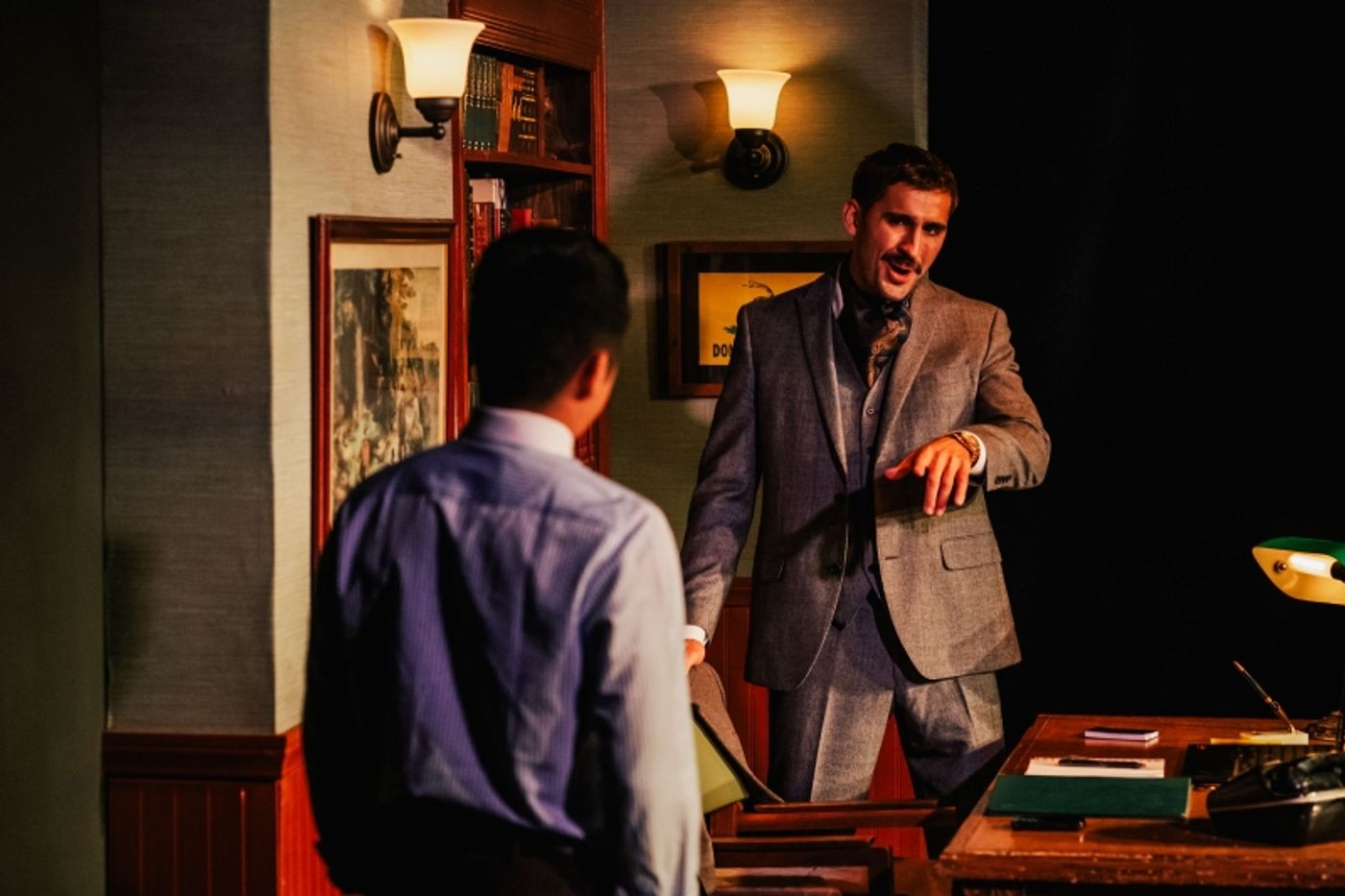
Brian Yeun as Steven Choi & Carlo Mancasola as James Cross from The Confederate States of America. Photo credit: Jeff Lorch
In what ways does your play serve as a commentary on contemporary issues?
We present these ideas in the hope that we can start listening to each other again. To encourage discussion outside the safety of the comfortable bubbles in which we live or engage politically. To be able to enter lively debate and discussion of the issues that matter the most to us and our families without the threat of violence or extreme vitriol, certainly without the hatred that exists in our societal engagement today.
What are the major themes of your play and what are you trying to communicate about those issues?
HOPE. PARTNERSHIP. RESPECT.
Thank you both so much for your insights!
TH IR DS continues at 8pm Fridays and Saturdays, 2pm on Sundays through Sunday, September 29 at the Zephyr Theatre, 7456 Melrose Avenue in Los Angeles, California 90046. Street parking only so arrive early and read parking signs carefully. Tickets are $35. Seniors and Students with valid ID: $25. Reservations can be made on the play’s website at https://thirdstheplay.com with available seats sold at the box office prior to performances. Run time is 100 minutes (plus one intermission).
Playwright: Ben Edlin
Story by Deborah Aquila and Ben Edlin
Directed by: Jessica Aquila Cymerman
Produced by Gabrieal Griego for Last Exit Productions
Jeff G. Rack (Scenic and Prop Design)
Derrick McDaniel (Lighting Design)
Joseph ‘Sloe’ Slawinski (Sound Design)
Emilyna Zoë Cullen (Costume Design)
Andrew Marsh (Composer)
Michelle Hanzelova-Bierbauer (Projection and Graphic Design)
Cast:
The Union States of America
Derek Webster as Professor William Seward
The Confederate States of America
Tess Harrison as Patricia Todd
Éanna O’Dowd as Peter Todd
Brian Yeun as Steven Choi
Carlo Mancasola as James Cross
The Pacific States of America
Ben Edlin as David Cohen
Corbin Reid as Catherine Shepard
Videos

